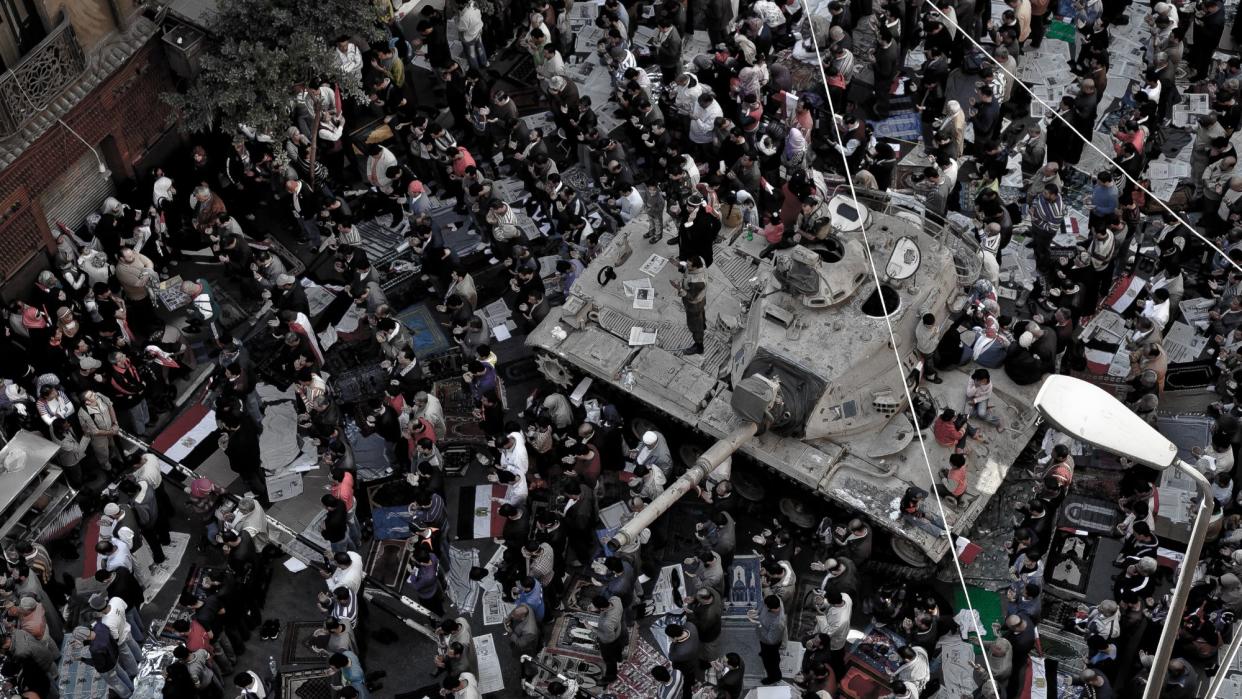The 2010s and mass protest: a decade without meaningful change?

The 2010s saw a surge in protests across the Middle East, Asia, Europe, Latin America and the US, yet very few achieved any meaningful change and in some parts of the world, the situation became materially worse.
That is the thesis of journalist Vincent Bevins, whose new book "If We Burn: The Mass Protest Decade and the Missing Revolution" sets out to explore the protests that coloured the years from 2010 to 2020, through 250 interviews across 12 countries.
Many movements that began with demonstrations in public squares in numerous world capitals "lost out", said Vox, and many countries "ended up with leaders even more repressive than the autocrats that protests toppled". Figuring out why "has bedevilled activists since".
The question is critically important, the site added, because if an answer can be found, "the next generation of protesters can get things right".
'Lit the world on fire'
When a street vendor named Mohamed Bouazizi set himself on fire in protest against the Tunisian government in 2010, he "lit the world on fire", said The New Republic.
Even though many people may not have heard of him, he is "among the most influential individuals of our century thus far" and the "millions he unintentionally inspired teetered and toppled governments".
Many protesters who followed Bouazizi experienced a sense of "euphoric victory" and saw their demonstrations "met with optimism in the international press", said Bevins in an extract adapted from his book and published in The Guardian. But years later the outcomes that have emerged are "very different from the goals of the protesters… [and] in many cases, things got much worse".
'Leaderless protest hurt more than helped'
Bevins's interest in the subject began in 2013 when, while working as a correspondent in São Paulo, he witnessed the start of a national protest movement by an anarcho-punk collective focused on bus-fare activism.
Despite successfully lowering transit costs, the movement escalated beyond control, destabilising the left-wing government and contributing to the rise of right-wing forces, culminating in Jair Bolsonaro's rise to power.
This became the starting point for his book which "ends by giving Bevins's protagonists, the activists who saw their movements shift and warp in front of their eyes, a chance to reflect on what they could have done differently", said the LA Times.
All of them "land on the idea, to differing degrees, that the anarcho-punk culture of leaderless protest hurt their causes more than they helped them".
'A big protest begins with a question mark'
It isn't surprising that we have tended to think that big protests ought to "reliably bring about social change", said Zeynep Tufekci in The New York Times. Not least because they have often done so in the past.
But there have been "common patterns" in the 2010s movements' failures, she added. "The quickly sprung large movements often floundered for direction once the inevitable pushback came". Not only this but they also "didn't have the tools to navigate the treacherous next phase of politics, because they hadn't needed to build them to get there".
In part, this is because in the social media age, movements could build quickly rather than as the "culmination of long-term organising, an exclamation mark at the end of a sentence… But since the early 2000s, a big protest has started to feel more like a sentence that begins with a question mark."
'A glimpse of the way that life is supposed to be'
Even when they looked back on the experience of their respective movements' failures, Bevins said his interviewees were split.
Some felt a "horrible comedown", and a "plunge into depression that came after things did not work out".
Others still felt elated by it, feeling they had experienced "a stunning, momentary glimpse of the way that life is really supposed to be".
Despite the failures of the last decade's protests, Bevins's book, which on the surface might look like "a pessimistic reading of history" is also "an optimistic project that looks toward the future", he told Vox. For protest to achieve, he argued, "all you have to do is match the tactics to this huge, demonstrable desire for change in the global system".
And when that occurs, "you have something that you can work on in the next decade".

